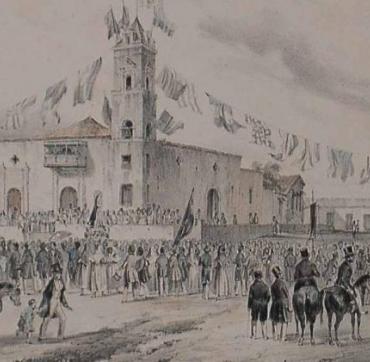China-Cuba: High-Quality Ties
especiales

In 2025, the 65th anniversary of the establishment of diplomatic relations between China and Cuba (September 28) is being commemorated, alongside the 80th anniversary of China’s victory in the War of Resistance Against Japanese Aggression and the Anti-Fascist War (September 3).
Given the significance of these events, and because China holds a position of prestige on the global stage, Trabajadores interviewed Ambassador Hua Xin, whose efforts to strengthen ties between the two nations have earned the respect of the diplomatic community in Havana.
How have bilateral ties grown over these 65 years?
Sixty-five years ago, before a million Cubans in the Plaza de la Revolución, Commander-in-Chief Fidel Castro announced the establishment of diplomatic relations with China. Cuba thus became the first country in the Western Hemisphere to establish diplomatic ties with the People’s Republic of China. This was a historic milestone for relations between the two countries, as well as for China and Latin America.
“Our special friendship is defined by political unity and mutual trust, economic benefit, cultural exchange, and mutual learning, which has endured 65 years of international changes, continuing to grow and develop, demonstrating its great vitality,” Ambassador Hua Xin stated.
The development of high-quality ties between China and Cuba is inseparable from the personal attention and meticulous care provided by successive leaders of both countries. Mao Zedong, Zhou Enlai, Fidel Castro, Raúl Castro, and other generations of Chinese and Cuban leaders have devoted immense effort to cultivating these relations.
In recent years, Presidents Xi Jinping and Díaz-Canel have met on multiple occasions, achieving broad consensus on the continued deepening of bilateral ties in the new era. This has strongly promoted the development of bilateral relations, elevating them to a historically high level.
“They have become a model of solidarity and cooperation between socialist countries and sincere mutual assistance among developing nations,” the ambassador added. “Both sides proudly claim to be good friends, good comrades, and good brothers, working together to build a community with a shared future.”
China-Cuba Economic and Trade Relations
China is one of Cuba’s main trading partners. Currently, China ranks as Cuba’s third-largest global trading partner, while Cuba is an important trading partner for China in the Caribbean. The prospects for economic and commercial cooperation between the two countries are broad.
“First, we have a solid political foundation for economic and trade cooperation. Meetings between Presidents Xi Jinping and Díaz-Canel set the direction and strengthen confidence for both governments to continue promoting bilateral cooperation across various sectors and levels,” Ambassador Hua Xin said.
“Second, trade channels are continuously expanding. In recent years, companies from both countries have actively explored new business models, such as cross-border e-commerce, leveraging events like the China International Import Expo, the Canton Fair, and the Harbin International Fair. Direct passenger and cargo flights between China and Cuba have further facilitated trade,” he added.
According to Chinese Customs statistics, from January to July 2025, the total value of bilateral trade in goods between China and Cuba reached $759 million, representing a year-on-year increase of 73.3 percent. Chinese exports to Cuba have doubled compared to the same period last year.
“Third, the commercial structures of both countries are complementary, and their development needs align. China imports mainly minerals, seafood, tobacco, pharmaceuticals, and alcohol from Cuba, while Cuba imports primarily electrical equipment, machinery, vehicles, steel, and plastics from China. This has established a pattern of complementary advantages and mutual benefit,” he explained.
Chinese companies also actively participate in the development of Cuba’s energy, electricity, agriculture, and telecommunications sectors, leveraging industrial and technological advantages to contribute to energy transition, food security, digitalization, and improved living conditions. Joint ventures have produced fruitful collaborations, and future prospects remain promising.
The 80th Anniversary of Victory in the War of Resistance Against Japanese Aggression and Anti-Fascist War
Eighty years ago, under the firm leadership of the Chinese Communist Party, the Chinese people, after 14 years of bloody struggle and at a cost of over 35 million lives, defeated the Japanese militarist invaders and achieved a great victory. “It signified the triumph of justice over evil, light over darkness, and progress over reaction. It was a victory for the Chinese people and for the people of the world,” Ambassador Hua Xin said.
China commemorated the anniversary with a solemn ceremony honoring the dedication and sacrifice of ancestors and transforming historical memory into present-day spiritual strength. The event also recalled invaluable assistance from peace-loving countries, international organizations, and other anti-fascist forces worldwide.
“History cannot go backward; it must move forward. The world cannot be divided but must unite. The international community must learn from history and firmly oppose all forms of hegemony and power politics. Countries must respect each other’s sovereignty and territorial integrity,” he added.
China reiterates opposition to acts that violate the UN Charter or threaten the sovereignty and security of other states. It also opposes coercive diplomacy and calls on the United States to immediately lift the blockade and sanctions against Cuba and to intensify efforts to promote peace and stability in the region.
A Community of Shared Future
In recent years, Chinese authorities have promoted the concept of building a community with a shared future. “In today’s world, all countries’ interests are interconnected, global challenges constantly arise, and security threats—both traditional and non-traditional—spread. No country is immune,” the ambassador said.
Since Xi Jinping proposed the concept in 2013, China has fostered various forms of communities with a shared future with dozens of countries and international organizations, covering bilateral to multilateral, regional to global, and sectors from health to cyberspace and oceans. The concept has been incorporated into numerous UN General Assembly resolutions and multilateral forums such as the Shanghai Cooperation Organization and BRICS, gaining increasingly wide global recognition.
In Latin America and the Caribbean, the concept has taken practical shape. In 2014, Xi Jinping proposed the construction of the China-Latin America and Caribbean Shared Future Community. Among the 26 countries in the region with which China maintains diplomatic relations, Cuba and China have established the first bilateral shared future community in the Western Hemisphere, while China’s relations with Brazil have elevated to a shared future community for a more just and sustainable world.
“Cuba is a model for China’s relations with Latin America and the Caribbean. It was the first country in the Western Hemisphere to establish diplomatic relations with the PRC. The China-Cuba shared future community is the first with a Latin American and Caribbean country,” Ambassador Hua Xin emphasized.
65 Years of Brotherhood
Cuba made history on September 28, 1960, becoming the first country in the Western Hemisphere to establish diplomatic relations with Beijing and recognize the One China principle. This gesture marked the beginning of a strategic alliance based on solidarity and mutual cooperation, materialized through concrete actions of support.
This year, on the 65th anniversary, China has reinforced its support for Cuba. In January, it donated equipment to restore national power generators; in March, it provided 120 megawatts from solar parks; in June, it supplied parts to repair 100 buses in Havana.
Weeks later, the Chinese Red Cross demonstrated continued commitment to the Cuban people by delivering 1,000 emergency kits containing essential items. “A friend in need is a true friend,” Hua Xin said at the handover.
In Good Times and Bad
The bilateral relationship extends beyond humanitarian aid. According to the Cuban Ministry of Public Health, China is one of the largest suppliers of medical and biopharmaceutical products to Cuba. China was also Cuba’s third-largest trading partner, with exchanges exceeding $759 million last year.
Cuba’s participation in the Belt and Road Initiative in 2021 opened opportunities in infrastructure and tourism. Projects such as the ongoing construction of the China-Cuba Friendship International Hospital in Hebei Province highlight the depth of educational and scientific ties, combining Cuban professionals with Chinese construction technology.
Politically, Beijing consistently defends Cuba at the UN, calling for an end to the U.S. blockade and the removal of Cuba from the list of alleged state sponsors of terrorism. These actions align with the shared future concept, reaffirmed during official visits between the two nations’ leaders.
Between 2006 and 2009, over 3,000 Chinese students studied in Cuba through scholarships promoted by Fidel Castro, while China annually provides 200 scholarships to young Cubans.
“Cuba and China have reached an unprecedented historical height in bilateral relations,” Cuban President Miguel Díaz-Canel stated during a June meeting with Chinese Special Representative Qiu Xiaoqi.
Bilateral cooperation also thrives in sports, culture, and academia. In April 2025, the book Stories of China and Cuba was published, and in June, the General Administration of Sports of China signed a Memorandum of Collaboration with its Cuban counterpart. In August, the 14th issue of Cuadernos de Nuestra América, dedicated to China, was presented in Havana.
After six and a half decades of diplomatic ties, with contributions ranging from aid donations to political and educational support, China and Cuba have demonstrated that South-South cooperation can be transformative.
“We are united in good times and bad,” Ambassador Hua Xin said, reaffirming that this commitment has become true brotherhood.














Add new comment